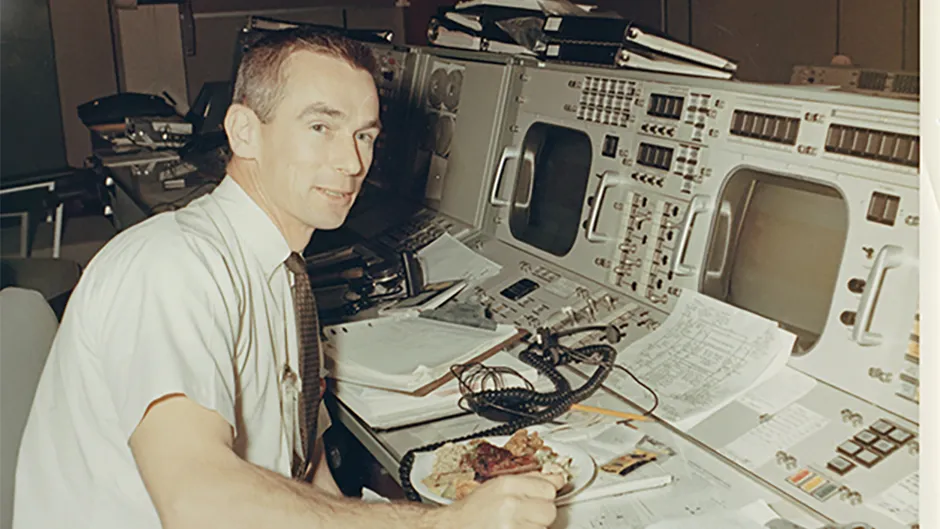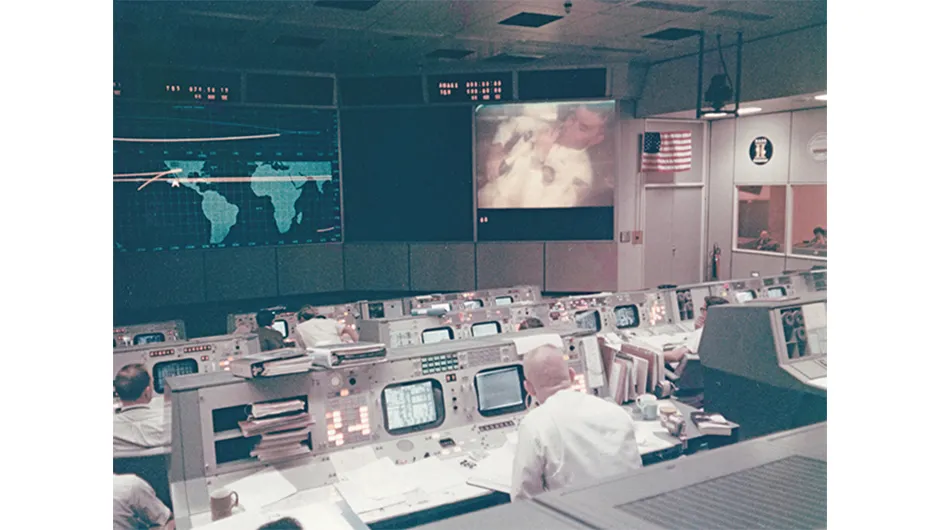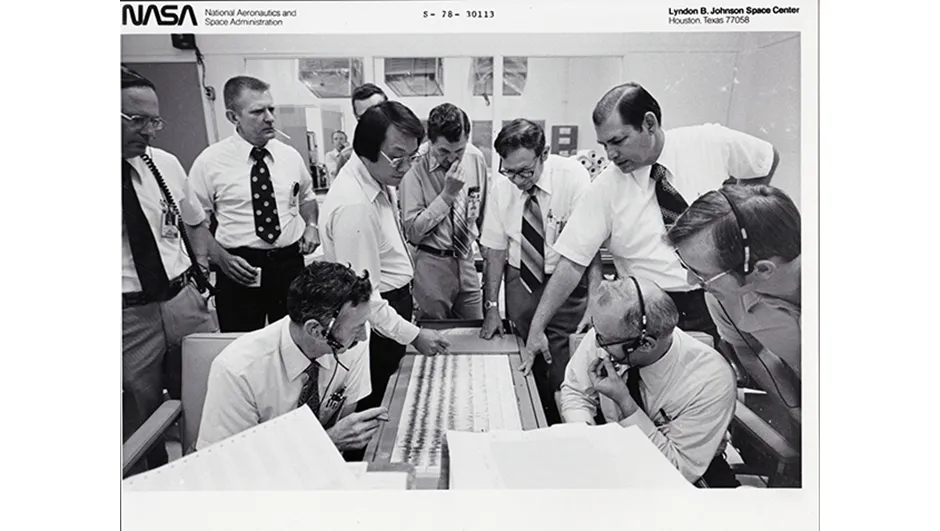"President Kennedy reached far into the twenty-first century, grabbed a decade of time, and slipped it neatly into the 1960s and 1970s," wrote the late Apollo astronaut Gene Cernan.
Indeed, the Cold War space missions that would eventually lead to Cernan’s own crowning as ‘the last man on the Moon’ must have seemed as futuristic then as they do now a relic of a bygone era.
But while the missions made household names of men like Armstrong, Aldrin and Cernan, a team of unsung heroes worked tirelessly behind the scenes to make sure the Apollo astronauts made it into space and, most importantly, made it back safely.
These engineers and scientists are the subject of a new documentary entitled - appropriately enough -Mission Control: The Unsung Heroes of Apollo, directed by David Fairhead, who worked on the recent Cernan biopicThe Last Man on the Moon.

The film begins as many Apollo-era documentaries do: the Cold War, Sputnik, Yuri Gagarin, Kennedy’s declaration that the US would land a man on the Moon and bring him back within a decade, the launch of project Mercury that would make Mercury Seven astronaut John Glenn the first American to orbit Earth, and the Gemini programme that paved the way for the glory of Apollo.
But in this case, and perhaps surprisingly for a film about men blasting off in rockets, the focus of the narrative is the people whose feet remained fixed on terra firma.
The average age of the men who worked at NASA's Mission Control was about 30, the documentary tells us, which seems to befit the ethos of the 1960s.

This was the era during which youth culture boomed, leading to the proliferation of music, fashion, television and popular culture generated solely for young people.
Perhaps it’s no surprise that those same young people would develop the confidence required to put men on the Moon.
AsMission Controltells us, Apollo flight director Gene Kranz (pictured left) summed this up perfectly when he coined the NASA maxim ‘tough and competent’, a response to the lessons learned following the Apollo 1 fire that took the lives of three astronauts before they had even lifted off from Cape Kennedy.
We learn how, in retrospect, the shock and grief of this loss may have acted as the catalyst that enabled NASA to fulfil Kennedy’s promise to the American people.
Mission Controlis awash with incredible archive footage from the time - including BBC news reporting - that puts across the sense of what it was like to experience the Space Race as a bystander.

Nowadays, most of us don’t bat an eyelid at the sight of a rocket lifting off to explore a distant planet in our Solar System, let alone one destined for Earth’s lifeless and nearby cosmic neighbour.
But the Apollo era was one of excitement at the possibilities that could be fulfilled by essentially ordinary people, and its tremors were felt across the globe (not least in the USSR).
As the documentary points out, many of the engineers who were eventually employed by NASA to work on Apollo didn’t even entertain the idea they might get a job interview, let alone an offer.
These were not planetary scientists with doctorates in astrophysics, but men who had grown up pondering the Moon while sitting on their parents’ front porch.
In retrospect, this says a lot about the eagerness with which Kennedy’s government sought to not be outdone by its political and ideological opponents.
Mission Controltakes us through each of the Apollo missions, dwelling on the most significant flights like Apollo 8, which took humans around the Moon for the first time, Apollo 11’s giant leap and the rollercoaster ride that was Apollo 13.
Speaking to the men who were involved in making the important decisions that often averted disaster, we learn much from their testimonies, and are able to contextualise this with glorious footage showing the young engineers operating in a tobacco smoke and testosterone-filled room.

This may perhaps be a complaint of many viewers: that no mention is made ofthe women who worked as ‘human computers’ at NASA Langleysome twenty years prior to the events of Apollo.
But the documentary has one clear focus - that of Mission Control alone - and is not a thorough historical reading of NASA’s structural development.
In any case, these once unheard stories have now finally received the attention they deserve via Margot Lee Shetterley’s incredible workHidden Figuresand its subsequent Oscar-nominated film adaptation.
Bookended with the testimonies of current - and notably female - flight directors, the documentary is nicely topped and tailed with a sense of where today’s NASA came from, but most importantly, where it is going.
A thoroughly enjoyable documentary,Mission Control: The Unsung Heroes of Apollois an incredible and nostalgic portrait of a team of humble engineers who managed to pull off the feat of the century.
